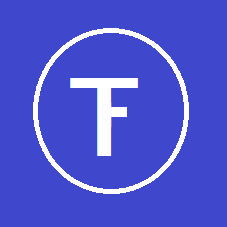What is a reverse loan?
A reverse loan is also commonly known as a reverse mortgage or a Home Equity Conversion Mortgage (HECM). This kind of a loan is the opposite of a conventional home loan, and it does not require the borrower to make any monthly payments to the bank or to the lender. Instead, it allows the borrower to receive a regular stream of income from a lender against the value of his or her home. The borrower continues to retain the responsibility to pay property taxes, insurance premiums, and homeowner’s insurance.
Why is a reverse loan ideal for senior citizens?
A reverse loan is structured in such a manner that it offers greater financial security to senior citizens with limited income, primarily because it can be used to cover any critical medical expenses and other general expenditures that they may have.
Who qualifies for a reverse loan?
Due to the rather distinctive nature of this loan, it is mandatory that the borrower must be 62 years of age, or older, and must own a home and reside in it. According to regulations, the following kinds of residential units qualify for reverse loans –
- A single-family home
- Condos approved by the HUD
- Manufactured homes that meet FHA requirements
- A home with two to four units, of which at least one unit is occupied by
the borrower.
Are there any other criteria to determine the eligibility for a reverse loan?
Apart from satisfying the above-mentioned criteria, the prospective borrower must also have a dependable track record of paying federal debts and taxes, and has to mandatorily undergo a customer information session by a HUD-approved HECM counselor.
When does repayment of the balance accrue in a reverse loan?
Unlike a traditional loan, the repayment of the balance in a reverse loan shall accrue only in any of the following situations –
- In case of the death of the borrower
- In case of sale of the borrower’s home
- In case the borrower ceases to use the home as his/her principal place of residence
Is the liability passed on to the borrower’s heirs?
An advantage that this kind of loan comes with is that the responsibility to repay the loan lies solely with the borrower and his spouse; at no point in time will any debt be passed on to the heirs of the borrowers.
What determines the borrowable limit for a reverse loan?
According to the regulations of the U.S. Department of Housing and Urban Development, the money that the borrower is eligible for in the form of a reverse loan depends on the following factors –
- The age of the eligible non-borrowing spouse (NBS)
- In case there is no eligible NBS, the youngest borrower (if there is more than one borrower)
- The prevailing rate of interest
- The lowest of the following figures –
- The sale value of the home to be mortgaged
- The appraised value of the home to be mortgaged
- The HECM FHA mortgage limit of $625,500
What are the various disbursement plans available?
he borrower can also choose to receive payments from the lender in a multitude of ways according to his/her needs and requirements. In the case of a fixed interest mortgage, the borrower shall receive a ‘Single Disbursement Lump Sum,’ which is basically a single lump sum disbursement at closing. In the case of adjustable interest rate mortgages, the borrower has the freedom to choose from multiple payment plans such as –
- Tenure Payment Plan –
Here, as long as at least one of the borrowers is alive and continues to use the home as a primary place of residence, he/she continues to receive equal monthly payments.
- Term Payment Plan –
The borrower can choose a fixed period of months according to his/her needs, and equal monthly payments are disbursed over this fixed term.
- Line of Credit –
As per this plan, once the maximum amount of credit (or in this case, the loan balance) that the borrower can access is established, the borrower is free to choose unscheduled payments in instalments until the amount of credit granted is exhausted.
- Modified Tenure Payment Plan –
This payment plan possesses the features of both the Line of Credit Plan as well as the Tenure Payment Plan, and extends for as long as the borrower remains in the mortgaged home.
- Modified Term Payment Plan –
This plan combines the ideas behind the Line of Credit Plan and the Term Payment Plan, and extends up to a fixed number of months as selected by the borrower.
What are the other costs associated with a reverse loan?
As is the case with any loan, reverse loans also include certain fees and charges that are payable by the borrower at the time of taking
out the loan. Some of these charges include –
a)Initial Mortgage Insurance Premium –Depending on the disbursements, a premium of 0.5% or 2.5% is charged by the lender at closing.
b)Annual Mortgage Insurance Premium –
A premium at an annual rate of 1.25% is charged on the outstanding mortgage balance every year.
c)Origination Fee –
The lender may also charge a fee (which shall be the greater of 2% for the first $200,000 of the home’s value, plus 1% of the amount over and above the $200,000, or $2,500) for processing the loan. The maximum amount that can be charged by a lender is capped at $6,000.
d) Servicing Fees –
The lender may also charge a nominal fee of not more than $30 or $35 per month, depending on the type of interest rate that has been opted for. This monthly fee is either added to the loan balance or included as part of the mortgage interest rate.
e)Charges by third parties on the loan.
f)Interest on the loan –
The borrower may also choose to exercise the option of funding these costs and charges from the proceeds of the loan instead of having to pay them out of his/her own pocket.
How This Works.
We’re experienced and knowledgeable professionals who are customer focused. We leverage technology with only one goal in mind:
To quickly and successfully fund your loan at the lowest cost possible.
Fast and Easy Setup
Apply online through our streamlined “quick as a blink” application process called… Blink.
Our system can also securely sync with your bank to quickly and easily access your statements.
We’re here to help, or if you want – just start on your own and we can help complete your application later.
Speak With Professional Advisors
Get access to clear, thorough and prompt answers from an experienced mortgage professional assigned to your case and that works for your benefit.
We Work For You
We work for you, not the lender.
Because your financial situation is unique, your interest is better served if you’re not captive to a one size fits all mortgage offering. We represent a wide range of lenders so we can deliver to you the best loan at the best price for your particular circumstance.
Our Services
Featured Loans
Below are some of the types of loans available to you through our lender network.
Fannie & Freddie Eligible
Conventional Loans
The classic low cost home funding option. Available in both fixed and adjustable rate plans.
Ginnie Mae Eligible
FHA Loans
The Federal Housing Administration (FHA), is a U.S. government agency that provides financing options that only require a minimum of a 3.5% down payment. FHA (203H) Disaster Loans however are eligible for 100% Financing.
Luxury Properties
Jumbo Loans
Today, many homes require loans that exceed conforming loan limit amounts. Jumbo loans are a popular way to secure financing that exceed certain limits set by the Federal Housing Finance Agency (FHFA). Unlike conventional mortgages, a jumbo loan is not eligible to be purchased guaranteed or securitized by Fannie Mae or Freddie Mac.
Government Programs
VA Loans
The United States Veterans Administration (VA) provides up to 100% financing for homes as a benefit to veterans.
Government Programs
USDA Loans
The U.S. Department of Agriculture’s (USDA) Rural Development Guaranteed Housing Loan program offer loans with up to 100% financing at rates below market and reduced mortgage insurance premiums with low credit score requirements.
Elder/Senior Loans
Reverse Loans
A reverse mortgage or Home Equity Conversion Mortgage (HECM) is a type of home loan for older homeowners (62 years or older) that does not require the borrower to make monthly mortgage payments.
Portfolio Programs
Private Equity Loans
Private Equity loans are based on the equity value of the property being put up for collateral and not necessarily on a borrower’s credit rating. This type of mortgage is a very useful for certain types of sophisticated borrowers such as those with multiple investment properties


Tam Funding.
Tam Funding is a licensed broker under the CA Dept. Real Estate: 02009074. Broker of Record NMLS : 1403204. Corporate NMLS: 1829222. CA Dept. Insurance: OL88065.
Borrower Conditional Approval is issued only when lender underwriting supplies a written clearance to do so. Borrower Conditional Approvals are conditional, not guaranteed and subject to lender review of all borrower information. The final funding of the loan is dependent upon all borrower conditions being met. Rates indicated are subject to market changes and may only be available to certain qualified borrowers. Tam Funding is an Equal Opportunity Real Estate, Mortgage & Insurance Broker
 Equal Housing Lender
Equal Housing Lender
![]() National Mortgage Licensing System
National Mortgage Licensing System








